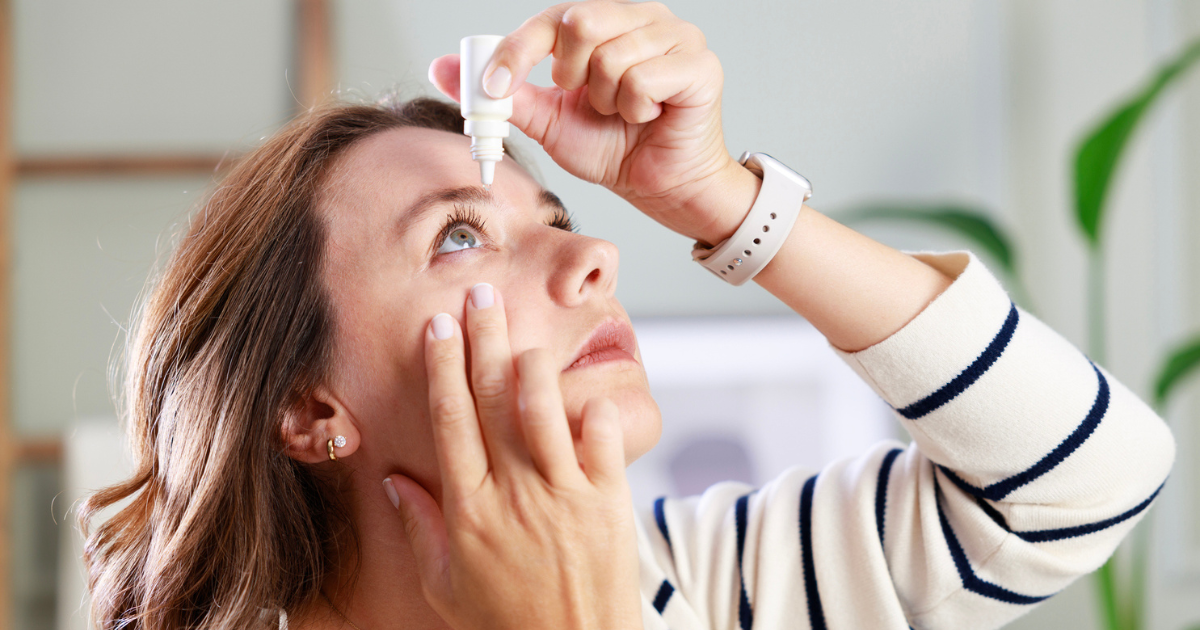Bulging eyes and double vision? It might be thyroid eye disease (Graves' disease)

If you're experiencing bulging eyes and double vision, you might be dealing with thyroid eye disease, also known as Graves' disease. This condition, which affects about half a million Americans, not only impacts your appearance but can also disrupt your vision and daily life.
Below, Nebraska Medicine ophthalmologist Rao Chundury, MD, discusses what you need to know about thyroid eye disease, including tips to protect your vision.
Thyroid eye disease symptoms
Thyroid eye disease symptoms vary and can include:
- Bulging eyes – eyes appear to stick out.
- Difficulty closing the eyes – can lead to dry eyes.
- Double vision – due to changes to the eye muscles.
- Dry eyes and irritation – often sensitive to light.
- Swelling and redness – around the eyes, especially the eyelids.
In some cases, mild thyroid eye disease can improve on its own. However, the condition can also become chronic with persistent or worsening symptoms. This phase usually lasts between 12 to 24 months. After this point, the condition generally enters a stable phase where symptoms remain persistent but don’t worsen.
Thyroid eye disease diagnosis and treatment
Thyroid eye disease is typically diagnosed through an eye exam and, if needed, imaging tests like a CT scan. If you notice any of the symptoms above or have a history of Graves' disease, it's important to consult your primary eye doctor or optometrist. Early intervention is key to reducing your risk for long-term damage.
Depending on the severity of your condition, your optometrist may recommend:
- Eye drops – to reduce dryness.
- Medication – to reduce inflammation.
- Radiation therapy to the orbits – to reduce swelling.
- Eyelid or orbital surgery – for severe cases.
Managing thyroid eye disease
While you cannot prevent thyroid eye disease, particularly if you have an autoimmune condition like Graves' disease, certain lifestyle changes can help you manage and reduce its severity:
- Quitting smoking
- Maintaining thyroid levels
- Wearing proper eye protection
- Getting regular eye exams
Don't hesitate to contact your doctor if you notice changes in your vision or experience discomfort. If you’ve been diagnosed with thyroid eye disease, your optometrist can help monitor your condition, adjust your treatment plan and provide guidance on maintaining your eye health. They may also refer you to an advanced specialist, such as an oculoplastic surgeon or neuro-ophthalmologist, for further evaluation and treatment.
The Truhlsen Eye Institute is the only facility in the region offering a complete range of ophthalmology subspecialties, including cornea, retina, uveitis, neuro-ophthalmology, dry eye, glaucoma, ocular oncology and oculoplastic surgery.







